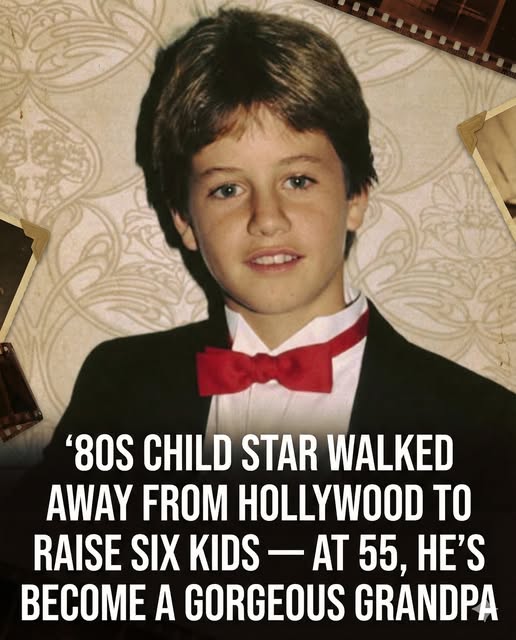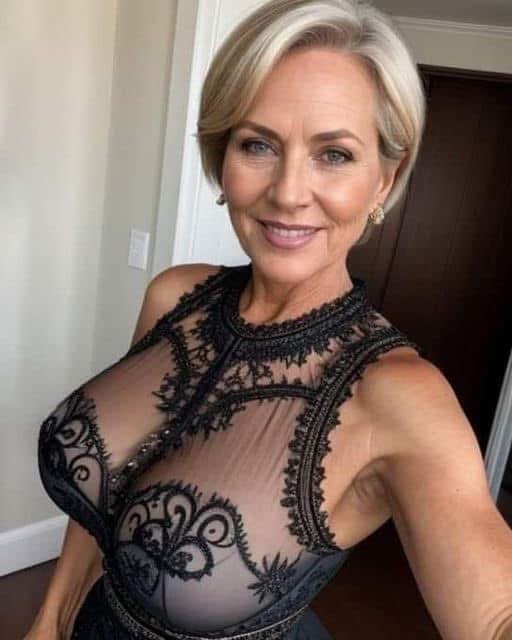Young stars in Hollywood often appear to have everything—fame, wealth, and striking looks. Their lives seem effortless from the outside, which is why it always surprises people when a teenage celebrity decides to walk away from it all.
The story here follows that same pattern. A young actor who captured the hearts of millions of women around the world eventually realized that life offered more than the bright lights of Hollywood.
It’s a familiar theme in entertainment, but this version is uniquely his.
He first became widely known as a child actor on Growing Pains, and from that point forward, he rose to become one of the most recognizable faces of the 1980s. Teen magazines constantly featured him, and it appeared he had achieved every young actor’s dream. But behind that success, he privately struggled with the pressures of early fame—and to him, life in Hollywood wasn’t as appealing as it looked.
Kirk Cameron never set out to be an actor. His childhood ambition was to become a doctor, a surgeon specifically. But his life veered in a completely different direction when his mother—encouraged by a friend—introduced him to acting. His sister, Candace Cameron Bure, also entered show business early and became known for her role in Full House.
The friend who encouraged Cameron’s mother was none other than the mother of fellow child star Adam Rich, famous for his role in Eight Is Enough. She recommended taking Kirk to talent agents to audition for commercials. Although his mother was hesitant, she followed the advice, and things took off quickly. Cameron soon began booking small roles, including a McDonald’s commercial. Even though he didn’t particularly enjoy acting, he kept getting offers.
“I was always annoyed that I had to brush my hair, tuck in my shirt, and then drive an hour in traffic just to audition,” he later said about those early days. Despite his reluctance, he eventually landed the role of Mike Seaver on Growing Pains, which made him a household name.
Still, he felt conflicted about whether Hollywood was where he truly belonged—until something entirely unexpected began to pull him in a different direction: his faith.
Cameron explained that his family had never been religious. “When I was growing up, we didn’t go to church,” he said. He later admitted, “If you had asked me, I would have said I was basically an atheist at 16 or 17.”
He believed that he “caught” atheism from the environment around him, saying his teachers often treated religion as nothing more than “a fairy tale.”
But then, a chance encounter changed everything.
He met a girl he liked, and she invited him to attend church with her family. “Honestly, it wasn’t God I was interested in—I was interested in the girl,” he later admitted. Still, that visit had a profound effect on him, and it quickly became noticeable to the people he worked with.
At just 17, Cameron’s evolving faith began influencing how he approached his role on Growing Pains, and the producers and cast saw the shift. Some worried about how his new convictions might affect the show.
“Is he getting into something that’s going to take him into Looney Town? And if so, we need to stop it,” Cameron recalled of the concerns raised at the time.
“I was trying to take the moral high road. I genuinely wanted to please God, and sometimes that was misunderstood,” he now says. But it was clear his priorities had drastically changed—and that unnerved those around him.
As time passed, the shine of Hollywood grew dimmer for him. He later reflected, “The evil, the darkness, the twisted sickness of Hollywood has been going on for a long time.”
His unease was reinforced when his former dialogue coach, Brian Peck—who worked with him on Growing Pains—was later exposed in a documentary for horrific abuse against young actors.
Those experiences solidified Cameron’s belief that Hollywood’s culture was dominated by power, ego, and pride. His conclusion came early in adulthood: he needed to walk away.
So he devoted himself fully to his faith, believing it offered real protection. “When that becomes your God—rather than the God who laid down His life on a cross—you’re in for a world of hurt,” he said.
At age 20, he married his Growing Pains co-star Chelsea Noble. Together, they stepped away from Hollywood and built a family. They have six children, four of them adopted.
Adoption has always been deeply meaningful to them—Chelsea herself was adopted. They made sure their adopted children always knew their stories and helped them reconnect with their biological families once they were old enough.
In 2021, Cameron announced plans to leave California altogether. On social media, he explained, “I asked what states people recommend for a Californian looking to relocate. The top responses were Tennessee, Florida, and Texas.”
To him, California felt increasingly unsafe, while he longed for a place with “more wholesome values.”
He chose Tennessee, partly because three of his children were already living there. The slower pace of life appealed to him, and he appreciated what he called the state’s “healthy freedom mindset,” which he felt was missing in California.
Tennessee also offered something else: it had become, in his words, a “hub for Christian projects.”
Living closer to family paid off in a big way in summer 2024, when Cameron became a grandfather. He joyfully announced the birth of his granddaughter, Maya Jeanne Noble Bower.
“Our hearts are filled to overflowing,” he wrote. “Our beautiful baby girl just had a beautiful baby girl. We can’t wait to spend every minute with her.”
Even though he left mainstream Hollywood, Cameron didn’t abandon creative work. In 2022, he released the film Lifemark, celebrating the beauty of adoption—a project deeply connected to his own family’s story.
Seeing Kirk Cameron thriving both personally and professionally, in ways aligned with his values, is truly heartwarming. Share this with fellow fans so they can catch up on what he’s been doing!


